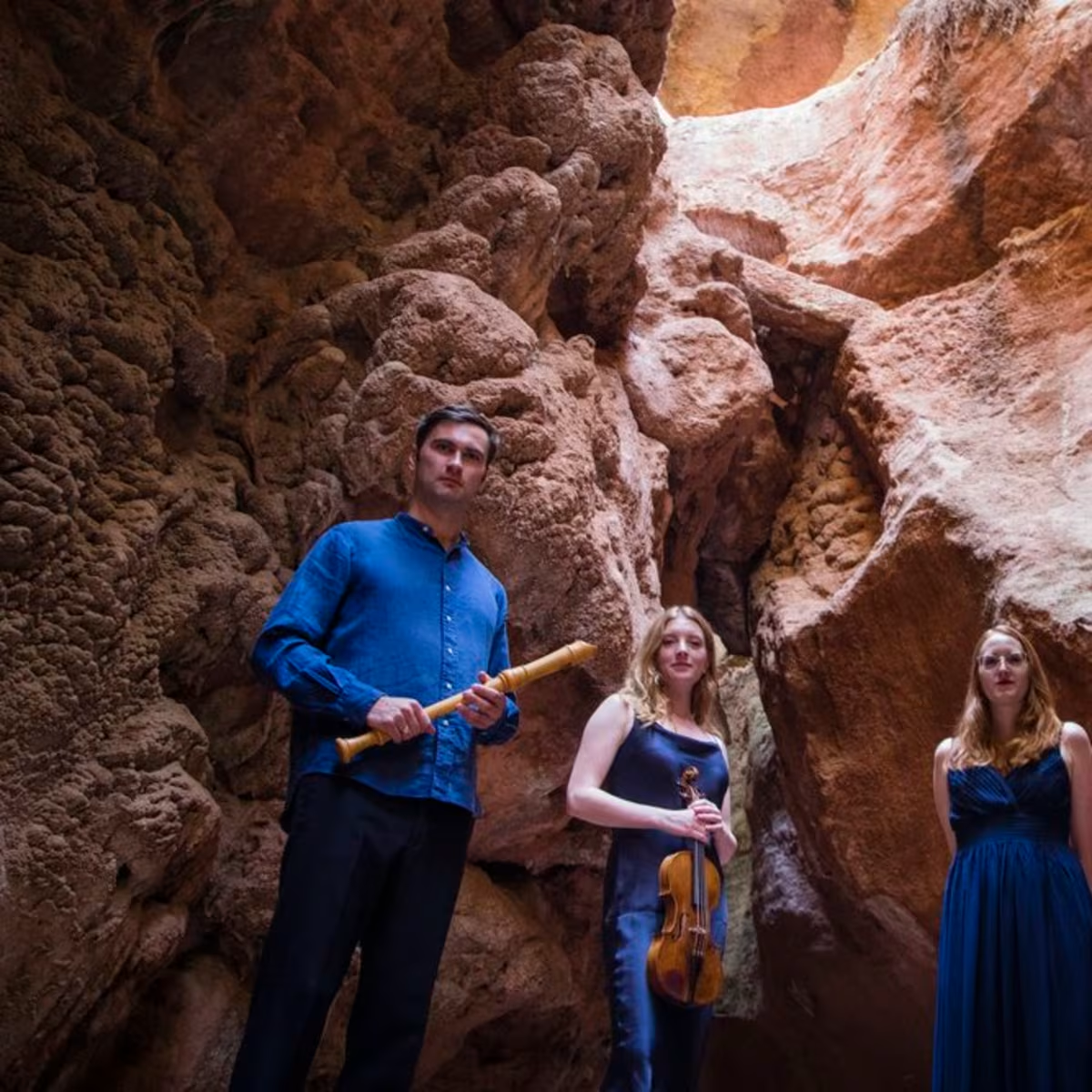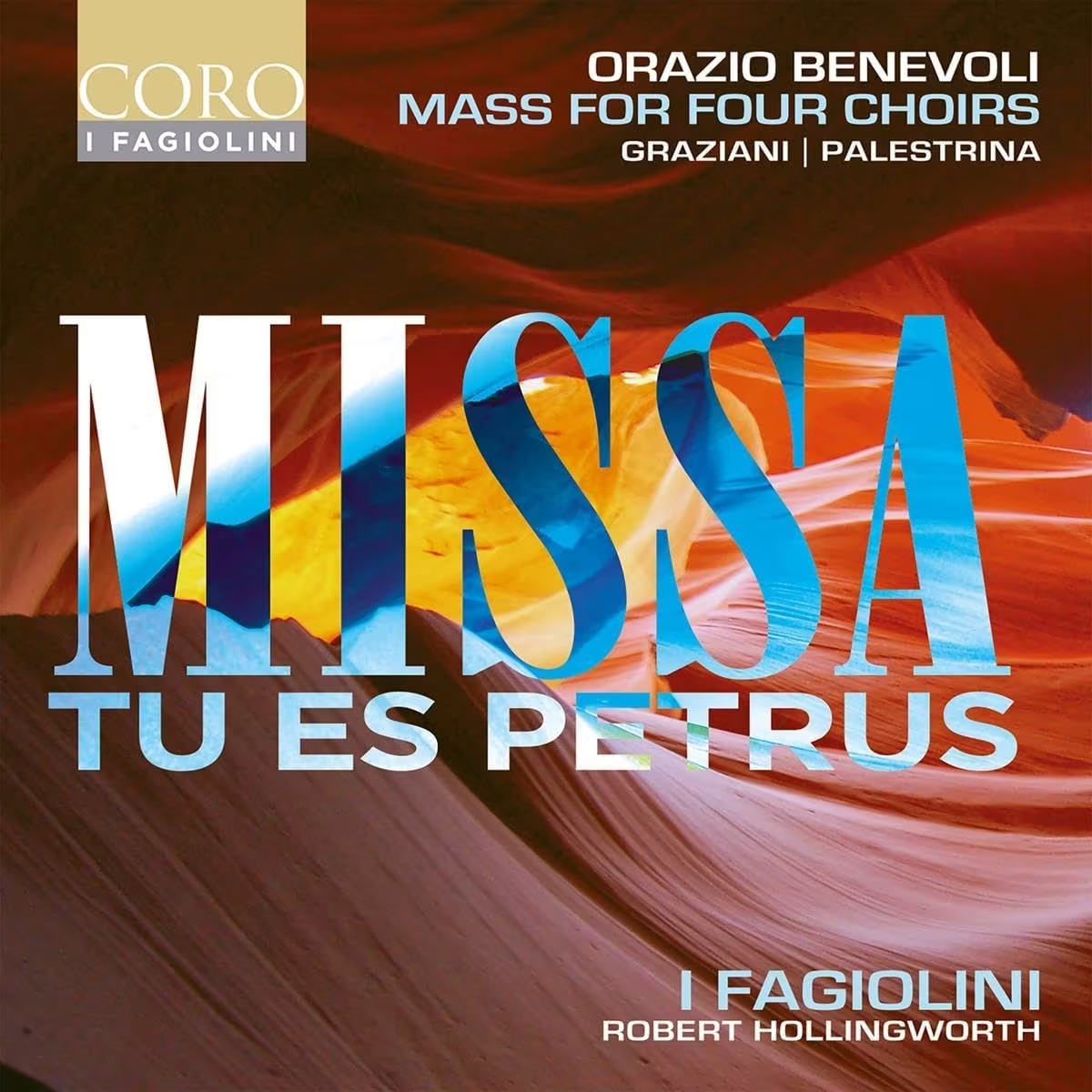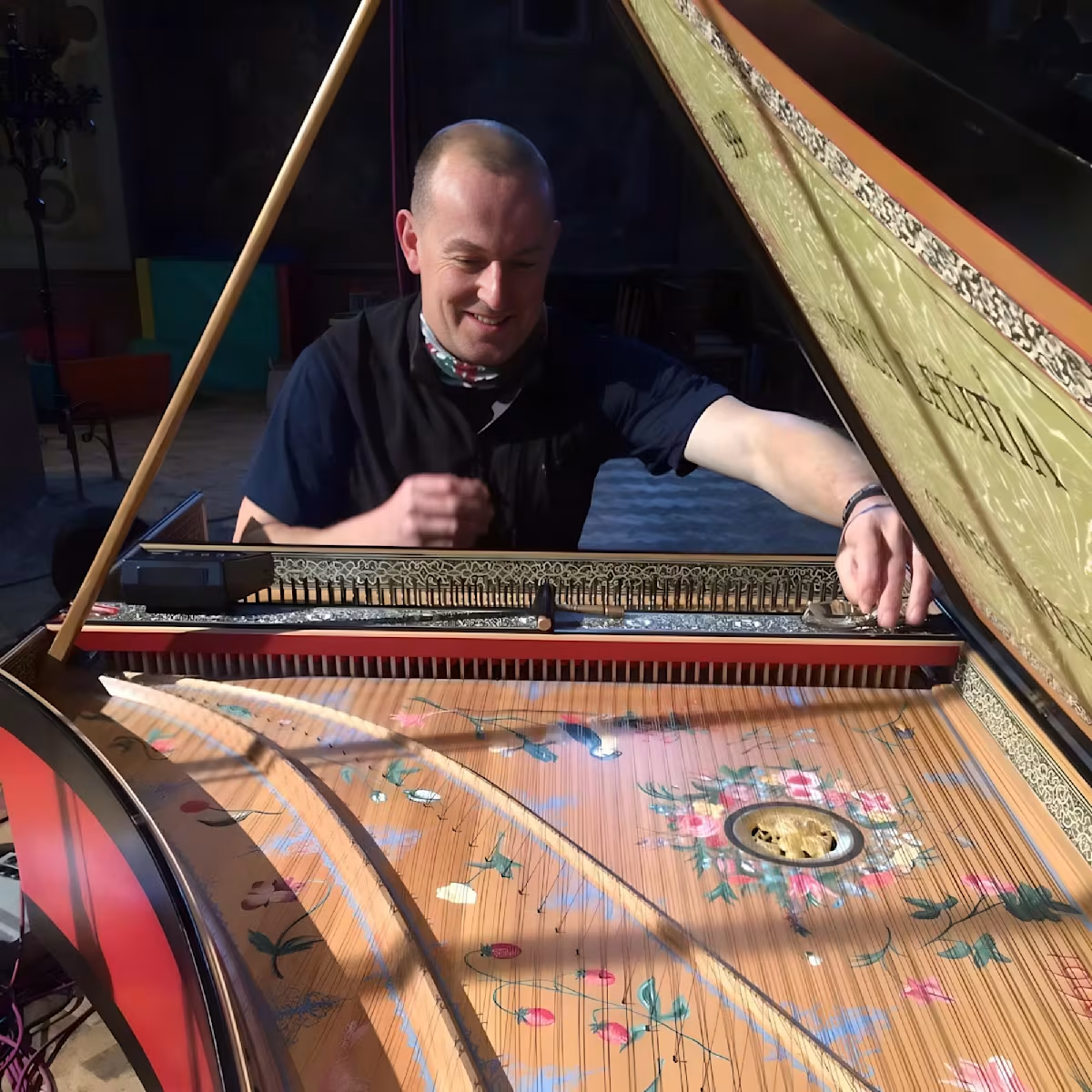Feature
Albion's Delight
Revisiting the popular folk music of the 18th century in Southern England
Share this

Backwater could have been a word designed to capture professional musical life on the Isle of Wight. The weather and the sea might be enticing but the range of classical music on offer is decidedly limited, given that roughly 150,000 people live on the island, with many more coming as summer visitors. The opportunities for musicians to live and work there have been lean at best, and for specialists in early music, even more slender.
One who has braved the challenge is lutenist Christopher Hirst, who abandoned London 11 years ago. He found that he was very much alone and things have not changed a great deal in the intervening years. He was determined not to retreat back to London but was prepared to look across the straits to Dorset and mainland Hampshire for collaborators. There, in 2023, he found Emma-Marie Kabanova, a British-Danish violinist who had been living in Moscow with her Russian husband until the invasion of Ukraine. Opposed to this war, Kabanova and her husband had the good fortune to be able to leave and to go to Dorset, where her parents live, and to join the thriving musical community there.
Like Hirst, Kabanova specialises in 18th century instruments and has been able to continue working in early music in Dorset and other parts of the country. They formed a duo which has now expanded into an ensemble, Phantasia, with the addition of a bassoonist, Matthew Dodd. 'It is rare to have a bassoon in a quartet,' Hirst observes, 'but it makes sense adding the wind sound, rather than gamba or cello.'

Hirst is at pains to point out that not only is his place of residence out of the mainstream (is that too many references to water?), but so are the instruments he plays. Most lutenists these days, he explains, use Italian-style lutes and these have become almost standard in the period instrument community, whether playing small lutes or large scale theorbos. Hirst prefers, and has specialised in, the 'under-researched' German lute family, principally the mandora, which is both strung and tuned differently. With fewer courses of strings than the traditional lute, it was easier for amateur musicians to play and so became increasingly popular in the 18th century, as printed collections of songs became cheaper and more available.
Hirst says, 'the baroque lute had become very over-complicated and from 1700 onwards the mandora took it back to a simpler form'. The mandora was used in ensembles and as an accompanying instrument until much later in Germany, Bohemia and Vienna than it was in Italian music, and there is a record of Weber hearing one as late as 1814. There were certainly players being able to earn a living using it around 1800. 'My instrument has eight courses of strings', Hirst says, 'and I don't know anyone else in England focusing on this repertoire.' Eventually, in the 19th century, the mandora and the guitar came to share similar characteristics of tuning and stringing.
Hirst feels that the mandora is particularly suited to the fashion in England and Scotland for the folk song arrangements which became so popular: the ballads from the pleasure gardens too. What we now think of as 'serious' concerts would have had the symphonies and concerti interspersed with songs at the end of the 18th century (a tradition still found in programmes up until the 1920s): as in those of J.C. Bach and Carl Abel, who ran London's most famous concert series in the 1780s. The link between art music and popular song was much closer than it has become since the genres separated, when the gramophone and radio came to dominate.
The programme Hirst has constructed for Phantasia's five concert summer tour of southern England reflects many of these themes. As well as Emma-Marie Kabonova and Matthew Dodd, he has teamed up with soprano Angela Hicks, whose admirably clear voice is just as much at home in the folk repertoire as in the conventional early classical and baroque, and therefore able to bring the sense of vocal freedom to the songs that is often missing from the concert repertoire. She has that rare ability to sound natural while being capable of the most florid ornamentation.

The first half of the programme for the tour consists of songs from 1750 until the early decades of the following century. For the concerts in Shaftesbury, Dorchester and Broad Chalk, Kabanova curated a collection of tunes from the family archive of novelist Thomas Hardy who was also a fiddle player, as was his father, and his cellist grandfather (all called Thomas Hardy), and the recently discovered manuscripts of Benjamin Rose, a Dorset farmer, alehouse keeper and fiddler. Phantasia are particularly honoured to present this music at the Dorset Museum where the Hardy music books are displayed alongside the Hardy family violins and cello, or bass viol, as his grandfather called it.
On the Isle of Wight the ensemble will perform a medley of fiddle pieces by Niel Gow, the most popular arranger and composer of Scottish folk and dance music of the period (he had plenty of time to bolster that reputation, living to the age of ninety). There are also some of the arrangements Haydn was commissioned to make of Welsh and Scottish songs for the British market - a useful money spinner for him, as it was for Beethoven. Vauxhall's Pleasure Gardens are represented in numbers by J. C. Bach and Maria Barthélemon, a singer and composer who became a friend of Haydn's when he visited London. There are also sonatas by Abel and Gow's fellow Perthshire composer, albeit a more aristocratic one, John Reid. These days Reid is remembered for his music (Edinburgh University's concert hall is named after him), which is perhaps just as well because as a General in George III's anti-Jacobite and colonial armies, his reputation would now fall foul of fighting in some battles of dubious moral reputation.
The second half of the programme follows the old tradition of having the performers themselves supplying the music. Hirst has composed a series of pieces for the ensemble connected with the landscape of the Isle of Wight. He describes them as a fusion of the 18th century folk tradition with that of our own time, 'what you might hear in a folk club but with more decoration'. In between his numbers, Kabanova contributes two fantasies, appropriately given the ensemble's name. One refers back to the Scottish nature of some of the first half - a Macbeth Fantasy - and the other is on less lurid ground with a Fantasy Passacaglia on a Theme of Purcell."
A tour of the Albion's Delight programme, supported by a grant from Continuo Foundation, took place between 27 June and 9 August 2024, at venues across the south of England and the Isle of Wight.
Author: Simon Mundy
Share this
Keep reading

Baroque X Jazz: reimagining the trio sonata
Liturina’s work with jazz musician and composer Jonny Mansfield forges a new path for historical performance through genre crossover.

Orazio Benevoli: Missa Tu Es Petrus - Mass for Four Choirs
Orazio Benevoli: Missa Tu Es Petrus - Mass for Four Choirs, a recording by I Fagiolini and The City Musick.

In conversation: Andrew Wooderson
Continuo Connect meets maker and supplier of early keyboard instruments, Andrew Wooderson, who has a passion for fine craftsmanship.


